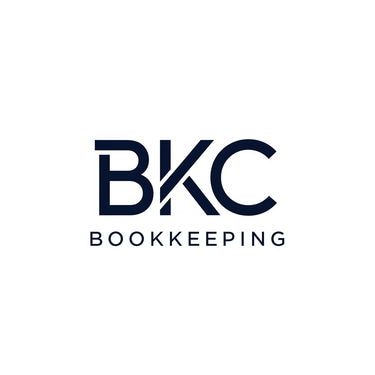What is a Virtual CFO? A Complete Guide for Business Owners
7/21/20252 min read


In conversations about scaling a business, the term "Virtual CFO" is becoming increasingly common. But what does it actually mean? Is it just a fancy title for an accountant, or is it something more? For business owners poised for growth, understanding this role is critical to unlocking the next level of success.
A Virtual Chief Financial Officer (vCFO) is a remote, strategic financial expert who provides high-level guidance and leadership for your business on a flexible, part-time basis. They offer all the expertise and insight of a traditional, full-time CFO without the six-figure salary and overhead.
Bookkeeper vs. Controller vs. CFO: Understanding the Hierarchy
To appreciate the value of a vCFO, it helps to understand where they fit in the financial ecosystem.
Bookkeeper: Focuses on the past. They are responsible for accurately recording daily financial transactions, reconciling accounts, and managing payroll. They ensure your data is clean and organized.
Controller: Focuses on the present. They oversee the bookkeeping function, manage financial reporting, establish internal controls, and ensure compliance. They make sure your current financial house is in order.
CFO (or Virtual CFO): Focuses on the future. They use the accurate data provided by the bookkeeper and controller to provide strategic guidance. They are your financial architect, helping you plan for long-term growth, manage risk, and maximize profitability.
What Does a Virtual CFO Actually Do?
While a bookkeeper asks "What happened?", a vCFO asks "What's next, and how do we get there?" Their key functions include:
Strategic Financial Planning: Aligning your financial strategy with your overall business goals.
Cash Flow Forecasting & Management: Creating detailed models to predict your future cash position and ensure you have the capital to operate and grow.
Key Performance Indicator (KPI) Management: Identifying, tracking, and analyzing the specific metrics that drive success in your business.
Budgeting and Variance Analysis: Leading the budget creation process and analyzing why you are over or under your financial targets.
Profitability Analysis: Diving deep into your products, services, and customers to identify what truly drives your bottom line.
Capital & Fundraising Strategy: Preparing your business for securing loans or investment capital.
The Top 3 Benefits of Hiring a Virtual CFO
C-Suite Expertise Without the C-Suite Salary: The primary benefit is access. You get the strategic insights of a professional with decades of experience for a fraction of the cost of a full-time, in-house CFO.
Scalable, On-Demand Support: A vCFO service grows with you. Whether you need 10 hours a month or 40, the service can be scaled to fit your exact needs and budget, providing a level of flexibility impossible with a full-time hire.
Data-Driven Confidence: A vCFO replaces "gut feelings" with objective, data-driven analysis. This gives you the confidence to make bigger, bolder decisions about pricing, hiring, investment, and expansion.
Is a Virtual CFO Right for Your Business?
If your business is growing, facing increasing financial complexity, and you find yourself needing more than just historical reports, it's time to consider a vCFO. It's an investment not just in better financial management, but in a more strategic and profitable future for your company.
Growth
Empowering businesses with financial clarity and support.
Finance
Clarity
info@bkc-bookkeeping.com
+13128234616
© 2025. All rights reserved.
BKC Solutions Management LLC.,
